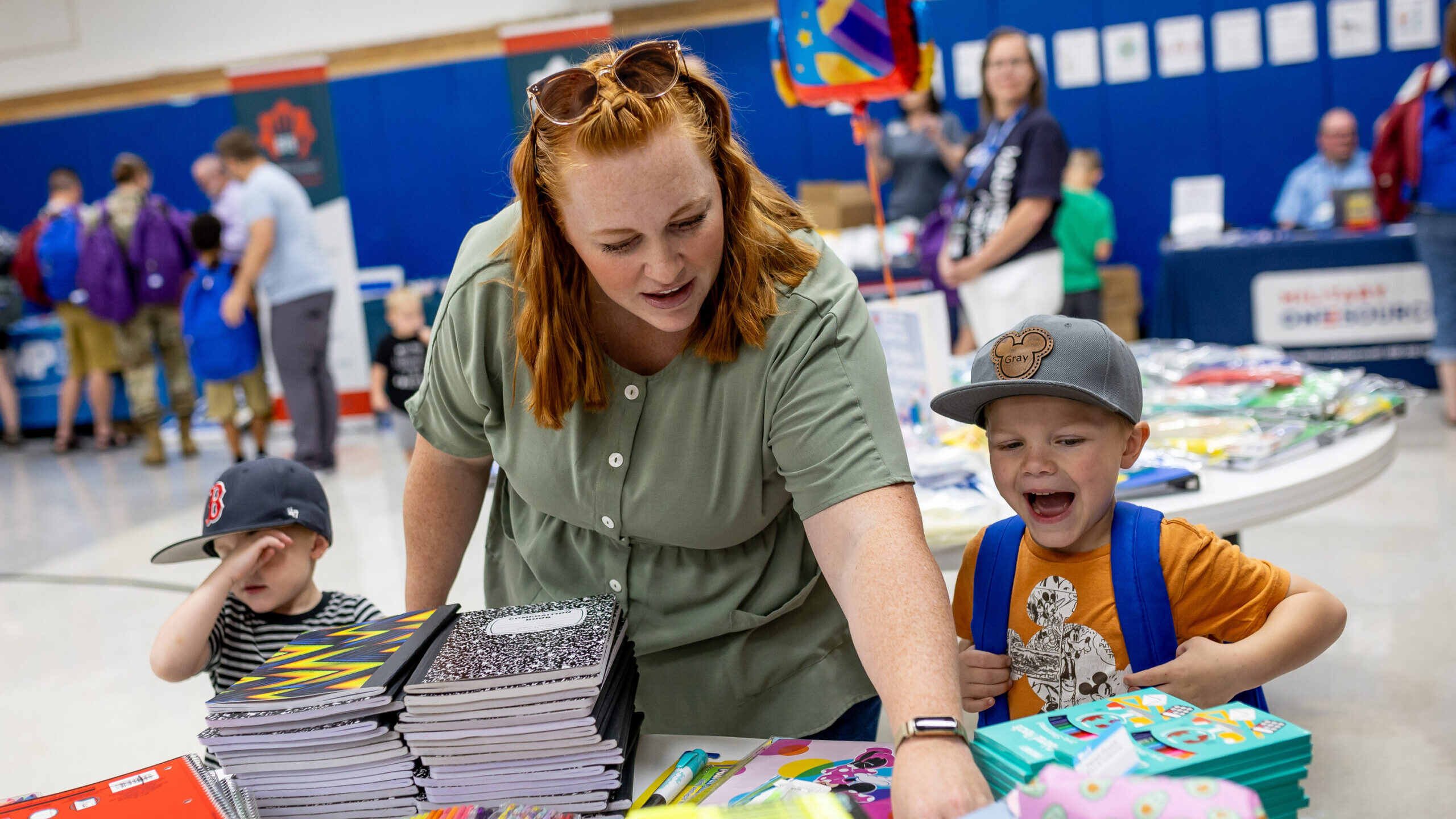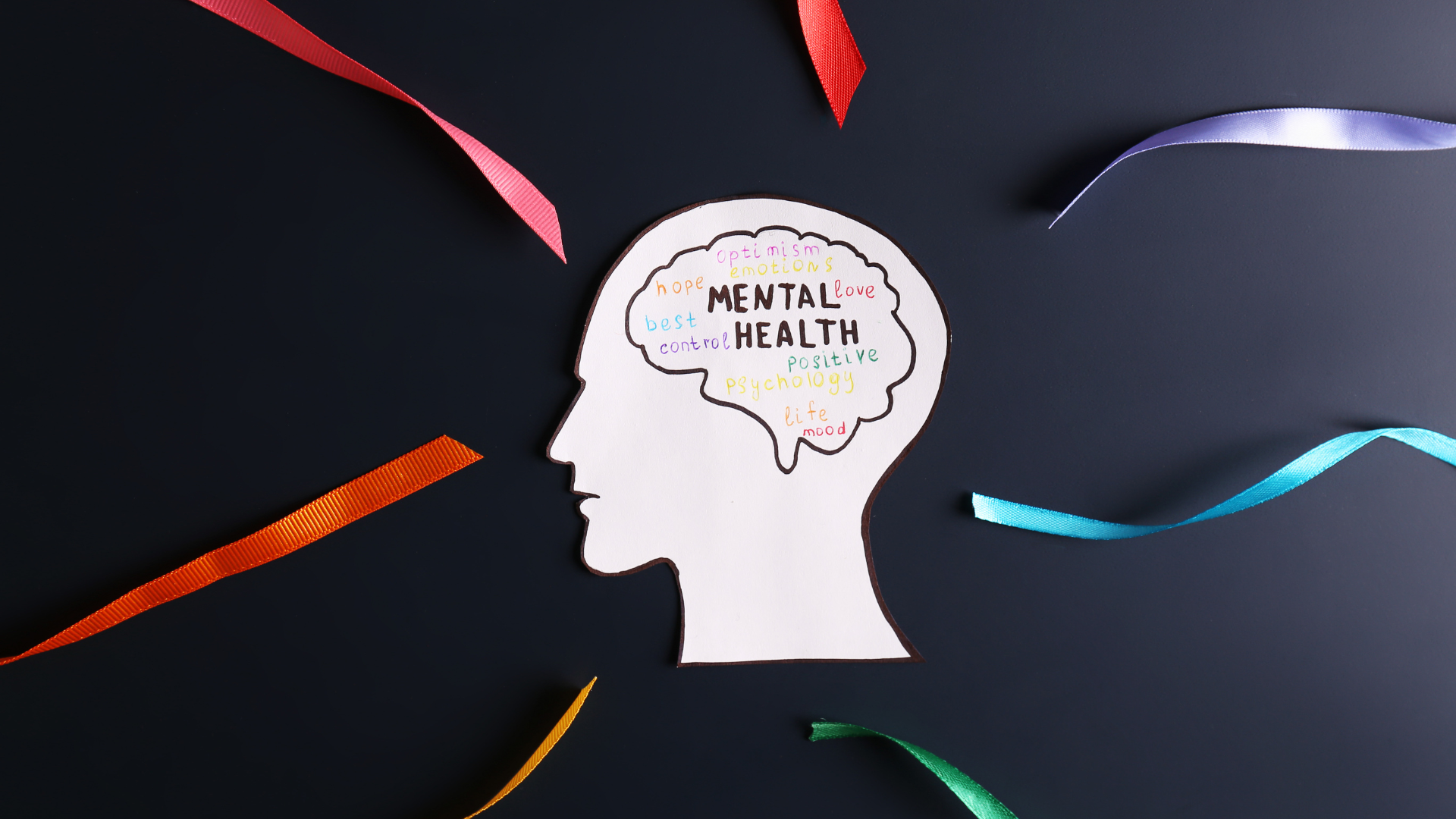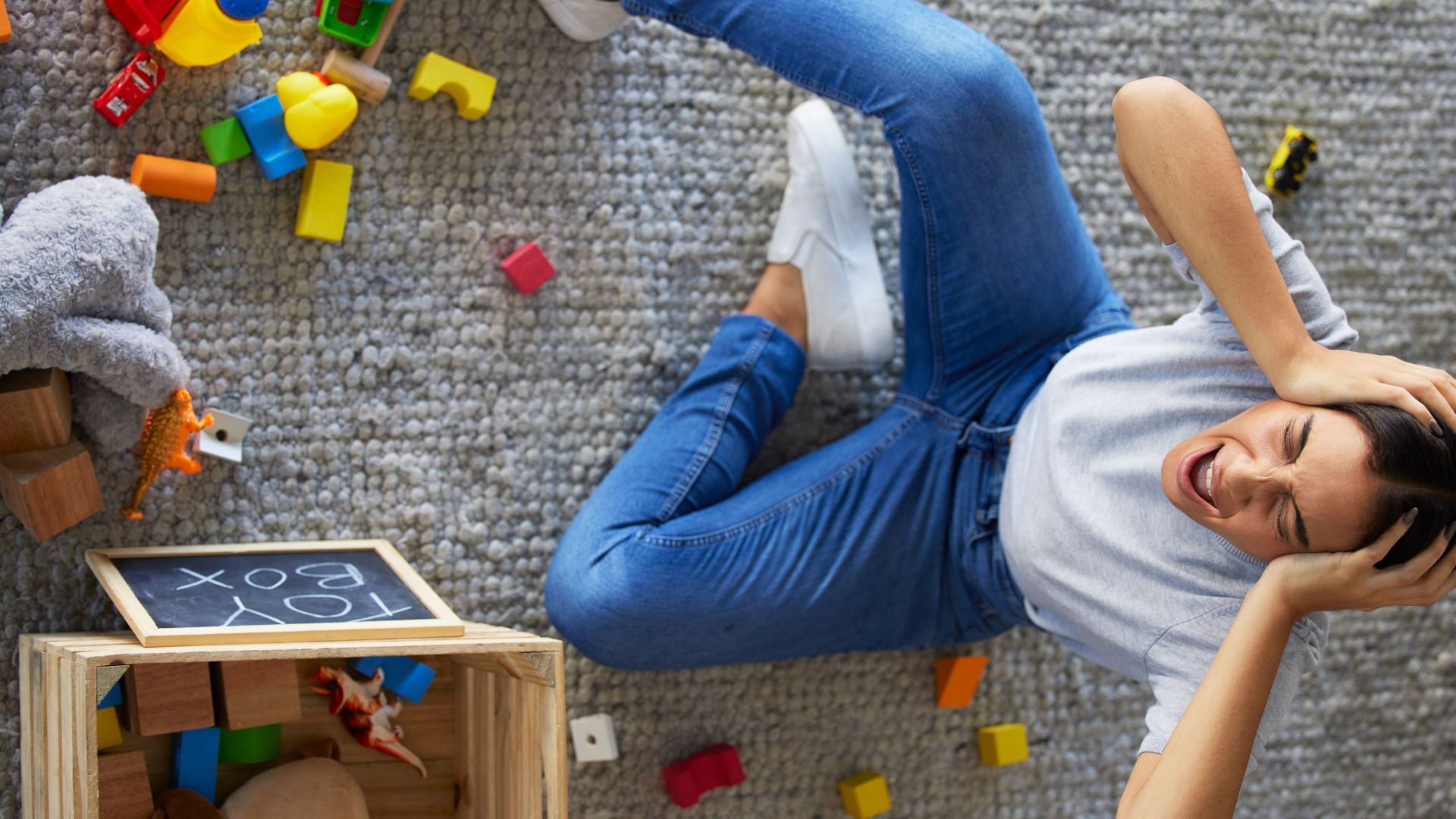Solid schedules can help mental health during back-to-school
Aug 10, 2023, 5:00 PM | Updated: Aug 11, 2023, 9:34 am

Macey Walters, whose husband is in the Air Force, collects free school supplies with her children, Cannon, 3, left, and Grayson, 6, at Operation Homefront’s annual Back-to-School Brigade at Hill Field Elementary in Clearfield on Wednesday, July 26, 2023. (Spenser Heaps/Deseret News)
(Spenser Heaps/Deseret News)
SALT LAKE CITY — Are your kids stressed out and it’s affecting their mental health all about going back to school? Maybe you’re stressed out for them. There are some things you can do to make this a smoother transition.
“Having a solid schedule to follow is really helpful in reducing stress and anxiety,” said Dr. Thomas Conover, the Medical Director of Youth Inpatient Services at Huntsman Mental Health Institute.
“When you’re making the transition from summertime, when things are pretty free and easy, to the school year where there are a lot more demands on the kids’ time, that puts more demands on the family’s time,” Conover explained.
Start with sleep
Your children’s sleep schedule is one of the biggest things that can vary between summertime routines and school routines.
“I think one of the best things that a parent can do for their children when it comes to anxiety is to manage their own stress and anxiety,” Conover explained. “A key in parenting is to say, ‘Hey, am I taking care of myself so that I can take better care of my kids?'”
This is part of modeling that is so important to parenting.
“We want our kids to see us doing the things we want them to do,” Conover emphasized. “Whether it’s eating well, getting exercise, or having a regular sleep schedule, kids need to see their parents doing these things. ‘Do as I say, not as I do’ just doesn’t work well in parenting.”
There is good data to show that devices in rooms are detrimental to sleep for both adults and kids.
“Set a time each night when everybody puts their screens down and gets ready for bed,” Conover advises. “If mom or dad says, ‘Put away your screen,’ but they continue to scroll through Instagram, that’s not going to resonate as well.”
Sleep effect on mental health
We often think about sleep in terms of performance. For instance, we believe we need to get a good night’s sleep in order to be our best or do our best.
“There is some truth to that, but the studies are mixed,” Conover explained. “People can burn the candle at both ends and still get stuff done. However, what is consistently true in scientific studies, is that poor sleep is associated strongly with increased depression and anxiety. So, you still might be able to get things done, but you might be miserable while you’re doing it.”
How much sleep is enough sleep?
It varies from individual to individual, and it also varies with age.
“You need a little less sleep in the grade school years,” said Conover. “Then as you go through all the growth and changes of the teenage years, most teenagers need more.”
How much more? Usually, 8 to 10 hours of sleep is ideal for a teen. That is tough for kids trying to juggle multiple activities with their school work.
“Try to maintain balance,” said Conover. “It’s wonderful to want to excel in multiple things, but everybody needs to look at their schedule and ask, ‘What can I realistically do, and how well can I do it?'”
For parents, his advice is to focus on the effort and the experience, not the outcome.
“Help the kid focus on how hard they worked on something, how hard they tried to do well,” Conover advises. “It’s really great to get an A or win a game, but we don’t want to lose sight of the fact that you want to be present for that activity and really learn from it.”













